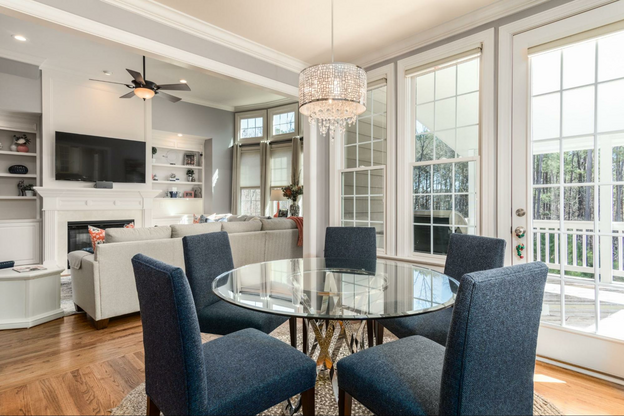
Embarking on selling your home can be both exhilarating and daunting, especially when presenting your space in the best possible light. The expertise of a proficient home stager can transform your property, making it irresistible to potential buyers.
However, not all stagers are created equal; selecting the right one requires careful consideration. From assessing their service costs to scrutinising their communication style, several factors play pivotal roles in ensuring you partner with the right professional.
7 Factors to Consider When Engaging with a Home Stager
When getting ready to sell your house, staging can be pivotal in showcasing its best features. To ensure success, here are seven critical factors to remember when selecting a home stager.
1. Experience and Portfolio
Diving into a home stager’s portfolio should be your first step. You want to understand their aesthetic, expertise, and success in transforming spaces. As you peruse past projects, note whether they’ve used editing software to refine their images or remove backgrounds.
This can show that they care about aesthetics, which is important with staging. The right fit involves a stager whose work resonates with your taste and the buyer demographic. Their experience and eye for design can elevate the property’s appeal to potential buyers.
2. Service Costs
When you’re ready to engage a home stager, the cost is one of the most significant factors you’ll need to consider. Home staging services can vary widely in price, so determine your budget early on. Some stagers charge a flat fee, while others might bill you based on each room.
Be wary of lowball quotes that may lead to lower-quality results or hidden fees down the line. Ask for a detailed quote that outlines all expected costs and payment schedules. This includes initial consultation fees, rental costs for furniture, and services like repairs or painting.
3. Client Testimonials
The proof of a home stager’s prowess often lies in the stories and experiences shared by past clients. Positive testimonials can offer you peace of mind and insight into the level of satisfaction you might expect. Look for feedback that highlights a stager’s professionalism and efficiency.
On the flip side, be mindful of negative reviews that point out consistent issues with service or results or poor communication issues. A balanced view of client testimonials will help you form realistic expectations and choose a home stager who is likely to deliver to your satisfaction.
4. Insurance and Credentials
Ensure the professional you hire has adequate insurance to cover potential damages during the staging process. This protects your property and provides a safety net against liability, which could be crucial if any accidents occur.
Credentials can underscore a home stager’s expertise and commitment to their craft. Look for certifications or memberships in recognised staging organisations. This formal recognition indicates they are committed to ongoing education and professionalism.
5. Availability and Timeline
The real estate market waits for no one, and timing your sale correctly can be paramount to achieving the best outcome. Confirm that the stager you choose can fit your home into their schedule promptly, especially if you’re aiming for a quick turnaround on the market.
Understanding the expected timeline for staging your home from start to finish is critical in planning your listing date. A professional stager should provide a clear timeline, including how long each process phase will take, helping you avoid unnecessary delays.
6. Furniture and Accessory Inventory
An inventory of furniture and accessories is a sign of a well-prepared home stager. They should possess an array of styles that can cater to different home aesthetics and potential buyers’ tastes. A good stager curates each room to tell the right story, appealing to the broadest audience.
Check if the stager regularly updates its inventory to keep up with current design trends, as outdated decor can detract from your home’s appeal. They should also have pieces that complement the unique features of your property, ensuring they enhance its character.
7. Communication Style
Effective communication is a cornerstone of any successful relationship. You’ll want someone responsive but also clear and straightforward in their interactions. Their ability to articulate their staging plan will be invaluable as you prepare your home for sale.
A home stager should be open to your questions and provide reassurance through constant updates. This transparency will help build trust and ensure you work toward the same goals, minimising stress throughout selling your home.
In Conclusion…
As you work on selling your home, remember that the right home stager is out there, ready to showcase your property in its finest form. Consider these critical factors with thoughtfulness, and take a step toward making your home staging experience a sublime success.




 POSTED BY
POSTED BY 

